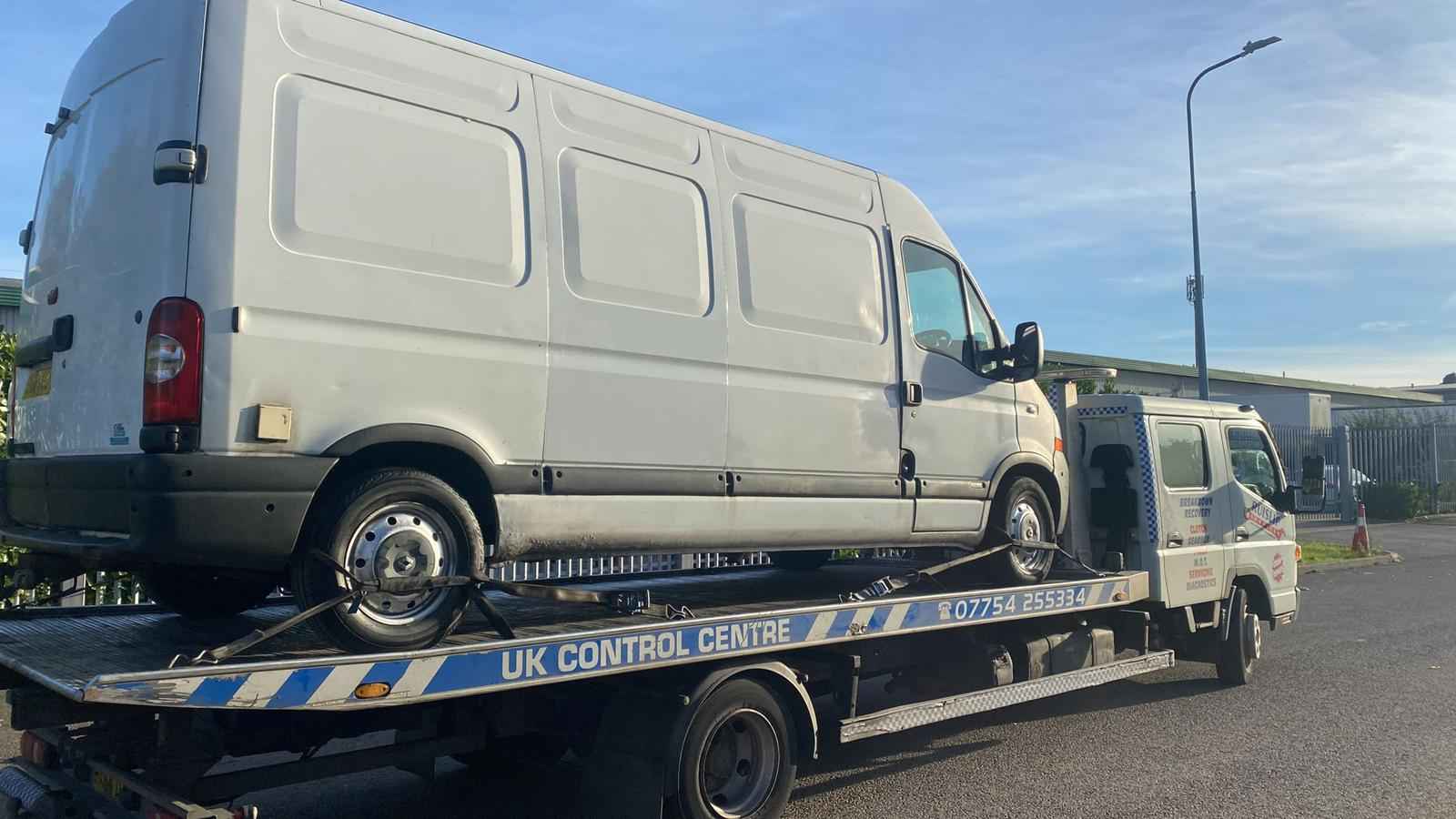Vans are essential vehicles for everyday business use and personal transport for millions of people throughout the UK. Used by couriers, tradespeople, and families alike, vans travel hundreds of miles a week and are susceptible to mechanical failure. Van breakdown can result in expensive delays and logistical mayhem. It’s therefore important for every van operator and owner to know the most frequent causes of van breakdowns—and how to avoid them.
Battery Failures: An All Too Preventable Issue
A flat or bad battery is one of the main reasons van breakdowns happen, particularly in cold weather. Vans get started and restarted numerous times per day, and short journeys do not give the battery enough opportunity to recharge before being used again. This wears it down, and eventually, it will fail.
To avoid this, it’s crucial to have your battery tested periodically, especially before winter. Regular use of the van or the purchase of a trickle charger for extended idle times can also contribute to prolonging battery life. Always look for corrosion around terminals and have them tightly tightened, as loose terminals can also cause electrical breakdowns.
Tyre Problems: The Root of Roadside Trouble
Tyres are subjected to continuous wear and tear, particularly for vans carrying heavy loads. Punctures, uneven tyre wear, and improper tyre pressure can increase the possibility of a van breaking down considerably. Tyre blowout or extensive wear can be risky, particularly on the highway.
Check your tyres every week. Look for embedded objects, cracks, or bulges. Make sure the tread depth is more than the UK minimum of 1.6mm, although most experts advise replacing them before they get to this point. Also, keep your tyres at the correct pressure as per your van manufacturer’s instructions, adjusting for heavy loads if required.
Overheating Engines: Small Problems, Big Consequences
Engine overheating is also one of the biggest reasons for van recovery callouts. Vans that make regular heavy loads or travel long distances are particularly vulnerable. Usual suspects include leaks in the coolant, faulty thermostats, or faulty radiator fans.
You can prevent engine issues by checking your coolant levels regularly and watching for any puddles under your parked van. If your temperature gauge creeps higher than normal, pull over immediately and let the engine cool down. Regular servicing can detect problems early before they turn into expensive repairs.
Brake Wear and Failure: A Major Safety Risk
Brakes are essential to your safety and the safety of other drivers. However, since they wear out over time, most van owners neglect signs of wear such as squealing, grinding, or a spongy brake pedal. Tool-laden vans or vans with heavy loads see faster brake wear, which puts them at greater risk of sudden failure.
You ought to have your brake pads, discs, and fluid inspected regularly. Neglecting even small indications of wear can lead to further damage, not to mention endangering your safety. Pre-emptive maintenance keeps your braking system running in top form in all weather conditions.
Electrical System Failures: The Modern Van’s Challenge
Today’s vans are full of sophisticated electrical systems that regulate everything from ignition to lighting and even air conditioning. A malfunction in the electrical system can result in immobilisation, faulty sensors, or warning lights on the dashboard. Wires gone wrong, battery failure, or blown fuses are usually to blame.
To prevent electrical breakdowns, include regular diagnostics in your servicing routine. If warning lights come on or if systems are malfunctioning, don’t brush them aside. Professional diagnostics can uncover hidden issues before they trigger a complete van breakdown.
Preventive Maintenance: The Key to Longevity
Regular servicing is your strongest defence against surprise van breakdowns. Adhere to the recommended servicing schedule of the manufacturer and notice any unusual noises, odors, or dashboard warnings. Have a checklist of oil levels, brake fluid, battery health, and tyre condition.
Additionally, think about signing up for a professional van recovery or roadside assistance scheme. These services provide reassurance and can save you money and time if your vehicle does happen to break down. You’ll have access to professional mechanics, towing, and even goods or passenger transport.
| Breakdown Cause | Symptoms | Prevention |
|---|---|---|
| Battery Failure | Van won’t start, dim lights | Test battery, clean terminals, avoid short trips |
| Tyre Issues | Low tread, blowouts, air leaks | Check pressure weekly, inspect for damage, rotate tyres |
| Overheating | High temperature gauge, steam from bonnet | Check coolant, fix leaks, service radiator |
| Brake Failure | Squeaking, grinding, soft pedal | Inspect pads/discs, replace fluid, avoid overload |
| Electrical Issues | Warning lights, erratic function | Run diagnostics, replace faulty wiring |
Also Read This:
When Your Van Breaks Down: What to Expect & How to Handle It
When a Breakdown Occurs: What to Do Next
If your van vehicle breaks down while driving, your safety is the priority. Switch on hazard lights, move to a safe area if you can, and leave the vehicle from the passenger side if on a busy road. Deploy a reflective warning triangle and use a high-vis vest if available.
Call your van breakdown recovery firm as soon as possible. Inform them of your precise location and of any symptoms you experienced prior to the van failure. A properly stocked recovery crew can determine your position, provide on-site repairs if feasible, or recover your van to a garage.
Conclusion
Van breakdowns are unexpected but usually preventable. Knowing typical causes—such as battery failure, tyre problems, and overheating—and fixing them before they happen keeps you mobile for longer. Staying on top of regular maintenance, plus having a sound van recovery strategy in place, keeps your vehicle safe, be it your business or your daily workhorse.



